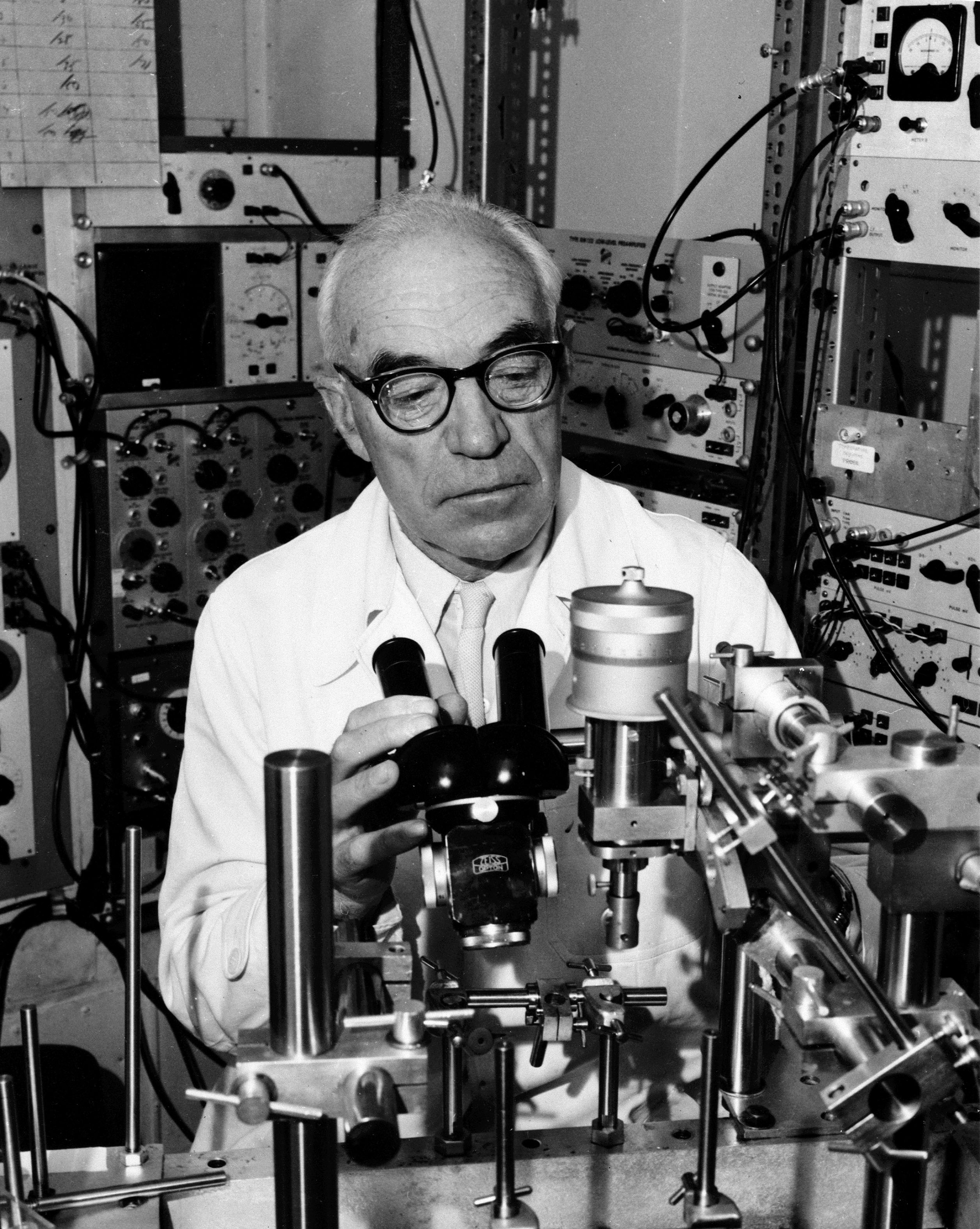Source: Evolution of the Brain: Creation of the Self (1989), p. 241
Contexte: I maintain that the human mystery is incredibly demeaned by scientific reductionism, with its claim in promissory materialism to account eventually for all of the spiritual world in terms of patterns of neuronal activity. This belief must be classed as a superstition … we have to recognize that we are spiritual beings with souls existing in a spiritual world as well as material beings with bodies and brains existing in a material world.
John Carew Eccles: Citations en anglais
He here refers to his proposal in "A unitary hypothesis of mind-brain interaction in the cerebral cortex" (1990); published in Proceedings of the Royal Society B 240, p. 433 - 451
How the Self Controls Its Brain (1994)
Contexte: The hypothesis has been proposed that all mental events and experiences, in fact the whole of the outer and inner sensory experiences, are a composite of elemental or unitary mental experiences at all levels of intensity. Each of these mental units is reciprocally linked in some unitary manner to a dendron … Appropriately we name these proposed mental units 'psychons.' Psychons are not perceptual paths to experiences. They are the experiences in all their diversity and uniqueness. There could be millions of psychons each linked uniquely to the millions of dendrons. It is hypothesized that it is the very nature of psychons to link together in providing a unified experience.
He here refers to his proposal in "A unitary hypothesis of mind-brain interaction in the cerebral cortex" (1990); published in Proceedings of the Royal Society B 240, p. 433 - 451
How the Self Controls Its Brain (1994)
Contexte: The hypothesis has been proposed that all mental events and experiences, in fact the whole of the outer and inner sensory experiences, are a composite of elemental or unitary mental experiences at all levels of intensity. Each of these mental units is reciprocally linked in some unitary manner to a dendron … Appropriately we name these proposed mental units 'psychons.' Psychons are not perceptual paths to experiences. They are the experiences in all their diversity and uniqueness. There could be millions of psychons each linked uniquely to the millions of dendrons. It is hypothesized that it is the very nature of psychons to link together in providing a unified experience.
Source: Facing Reality (1970), p. 83
Contexte: I believe that there is a fundamental mystery in my existence, transcending any biological account of the development of my body (including my brain) with its genetic inheritance and its evolutionary origin. … I cannot believe that this wonderful gift of a conscious existence has no further future, no possibility of another existence under some other unimaginable conditions.
Source: The Self and Its Brain (1977), p. 467
How the Self Controls Its Brain (1994)
Contexte: The materialist critics argue that insuperable difficulties are encountered by the hypothesis that immaterial mental events can act in any way on material structures such as neurons. Such a presumed action is alleged to be incompatible with the conservation laws of physics, in particular of the first law of thermodynamics. This objection would certainly be sustained by nineteenth century physicists, and by neuroscientists and philosophers who are still ideologically in the physics of the nineteenth century, not recognizing the revolution wrought by quantum physicists in the twentieth century.
As quoted in "Eccles' Model of the Self Controlling Its Brain : The Irrelevance of Dualist-Interactionism" (2003) by Donald E. Watson and Bernard O. Williams http://www.enformy.com/$dual.html
Contexte: In order that a "self" may exist there must be some continuity of mental experiences and, particularly, continuity bridging gaps of unconsciousness. For example, the continuity of our "self" is resumed after sleep, anaesthesia, and the temporary amnesias of concussion and convulsions.
How the Self Controls Its Brain (1994)
Contexte: The more we discover scientifically about the brain the more clearly do we distinguish between the brain events and the mental phenomena and the more wonderful do the mental phenomena become. Promissory materialism is simply a superstition held by dogmatic materialists. It has all the features of a Messianic prophecy, with the promise of a future freed of all problems—a kind of Nirvana for our unfortunate successors.
95
Source: Facing Reality (1970), Ch. 5.
As quoted in the Introduction of Conjectures and Refutations: The Growth of Scientific Knowledge (1963) by Karl Popper
